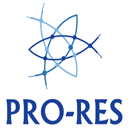Dingwa ll Enterprises Ltd. will be participating in a €2.8 million project linking 13 leading European scientific institutions to build an ethics/integrity framework for all non-medical research
ll Enterprises Ltd. will be participating in a €2.8 million project linking 13 leading European scientific institutions to build an ethics/integrity framework for all non-medical research
—————————————————————
Effective policymaking, built upon sound research, produces outcomes that benefit society, communities, groups and individuals. If research is flawed by lacking integrity and by being conducted unethically it is of no use to policymakers.
The PRO-RES project, coordinated by the European Science Foundation (ESF), France, aims at building a research ethics and integrity framework devised cooperatively with the full range of stakeholders. It seeks the same reach that the Oviedo and Helsinki frameworks have in the medical field. But this ambitious project will cover all non-medical research fields.
Fraud or corrupt practices by researchers can lead to serious damage to society and the physical environment. Reliable and transparent research, divorced from political ideology and undeclared vested interests, produces robust evidence that benefits social wellbeing and societal progress.
The consortium of 14 scientific institutions from ten countries will draw upon previous foundational work funded by the EC, and other national and international agencies: “…PRO-RES is to be as inclusive as possible when targeting the ‘non-medical’ sciences. The consortium partner composition is very diverse by design, ensuring that all relevant communities, to the extent possible, are represented.” says Dr. Jean-Claude Worms, Chief Executive of ESF, coordinator of PRO-RES.
“This funding Call targets the very people we need to reach to ensure that pleas for integrity in science and research are more than mere tokens. Ethical values, principles and standards need to be part of the ‘culture’ of research and science policy must recognise that need and the most effective way to support it.” says Dr. Ron Iphofen, initiator of the PRO-RES idea.
UK involvement is led by the Academy of Social Sciences, building upon the contributions of its working group on research ethics, in which Robert Dingwall participated.
This project has received funding from the European Union’s Horizon 2020 research and innovation programme under grant agreement No 788352
